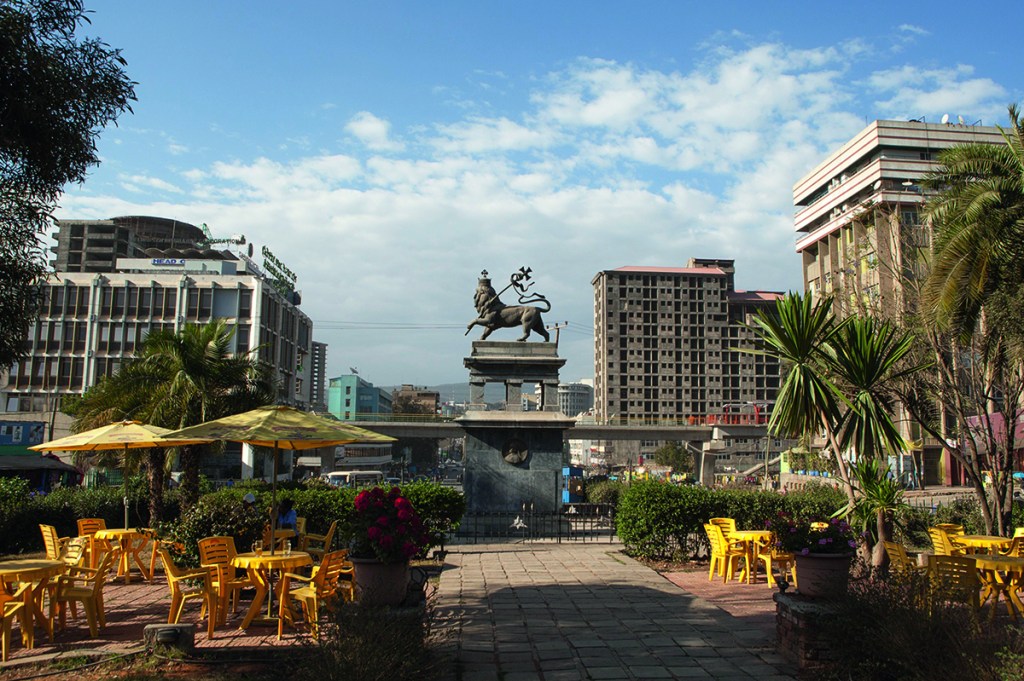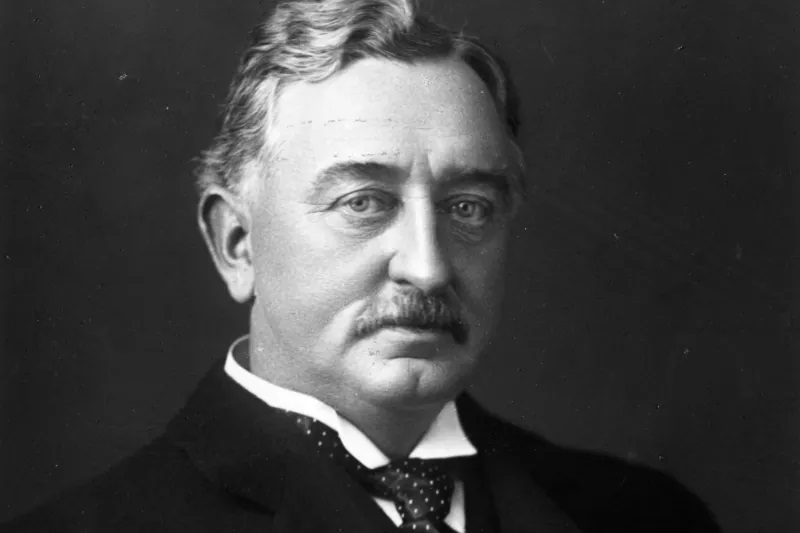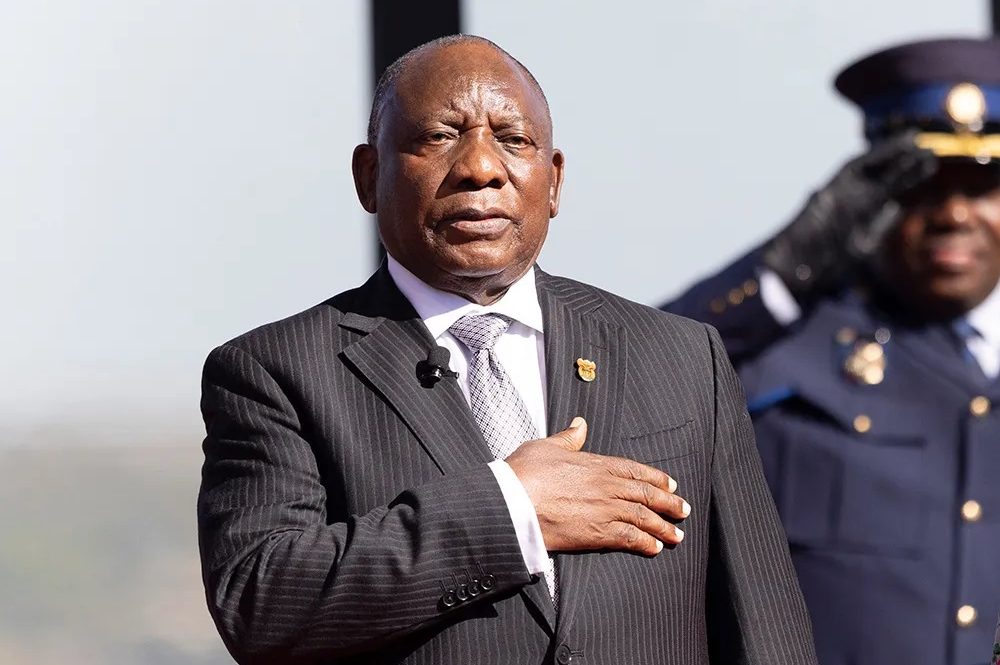This article is in The Spectator’s March 2020 US edition. Subscribe here.
In the Entoto hills high above Addis Ababa, the lights of incoming Ethiopian Airlines planes are evenly spaced in the night sky. Behind me in an abandoned restaurant, the DJ cranks it up and the dance floor goes nuts. EDM (Electronic Dance Music), a style popularized at American festivals and raves, has landed in Ethiopia.
I’ve been a dance music devotee since college. But when I first visited Ethiopia in 2000, I lost my heart to a different scene: mesinko-playing troubadours who mask political satire in witty innuendo, the hypnotic melodies of Ethio-jazz bands and the traditional shoulder-shaking of iskista dancers. I’ve never truly recovered from my first encounter with iskista as an impressionable 21-year-old. I would have married the woman dancing it then and there. It probably explains why I can’t stop returning to Ethiopia.
Addis Ababa’s music scene retains its eclectic heritage, but the arrival of a thumping dose of 21st-century EDM makes sense. EDM’s manic, caustic rhythms now coincide with dramatic shifts in Ethiopia’s political landscape. These have liberalized society and generated great hope, but they’re also releasing darker forces and fomenting conflict.
Ethiopia has a history of musical trends ebbing and flowing in tune to the latest political upheaval, often with a cross-rhythm of foreign influence. Following Emperor Haile Selassie’s return from exile in World War Two, Addis’s bands experimented with exotic styles such as jazz, R&B and soul that were being broadcast by an American military radio station. The musical fecundity continued, spurred by a volatile and edgy era bracketed by a failed coup in 1960 and a successful one in 1974.
After the imperial era’s bloody conclusion, the military junta brought in an overnight curfew that lasted 16 years. The live scene atrophied and talented players fled to the United States. But in recent decades Addis’s music scene has bounced back. Those diaspora musicians had kept recording: I’d hear their albums while squashed against a window in the city’s minibus taxis. As a developing Ethiopia opened to the world, local artists such as DJ Rophnan brilliantly blended traditional melodies with hip hop and dance music.
Ethiopia is embracing EDM, however, as a singularly western style. Chuchu, the smooth-talking 33-year-old behind the Entoto hills event, explained that younger Ethiopians have grown up experiencing EDM only through their smartphones. ‘So we have brought it home to them.’ A Turkish friend who’s lived and partied hard in Addis for more than a decade told me that an underground EDM scene already existed among the expat community. One of its main instigators turns out to have been a rival English journalist. No wonder I never got invited.
Addis is a high-altitude city, more than 7,500 feet above sea level. Recent arrivals can get out of breath from a brisk walk. Dancing at that altitude takes some fitness. ‘There’s drugs, of course there are,’ said my partying Turk. ‘It used to be very hidden. Now it’s out in the open.’ Addis old-timer that I am, I remember when a large bottle of tej honey wine cost a mere 30 Ethiopian birr — less than a dollar today. I prefer to spend a civilized afternoon chewing khat leaves for a mild buzz before hitting the dance floor.
As the latest buzz wore off, I needed a breather. Outside, foreign NGO and embassy staff debated whether to stay indoors the next day because of a planned anti-government rally. There were reports of closed roads, arbitrary arrests, even gunshots. Torn between assignments, I reluctantly left the throbbing hills to return to a sepulcher of a hotel room for a few hours’ sleep so I’d have some wits to cover the rally. Large gatherings in Ethiopia can turn nasty quickly.
Upon waking, I rushed down to Meskel Square, only to find that the organizers had canceled the rally after a government clampdown. Standing down from reporting duties, I savored a macchiato and avocado smoothie while watching Ethiopians returning from church. A peaceful Sunday slipped by.
Just over a week later, though, clashes on the outskirts of Addis triggered violence elsewhere in the country, leaving about 80 dead. In Addis we wrote about it — and partied on, foreigners and locals alike. It was ever thus. During the state of emergency in 2017, as the country seethed with ethnic clashes and millions fled their homes, the dive bars in the old-town neighborhood of Piazza belted out DJ Rophnan as we downed jugs of turbo, a popular Ethiopian concoction of white wine, beer and Sprite.
There are two very different Ethiopias. One is Addis, ever the epicenter of the country’s rapid development. The other is outside: the rest of the country is a parallel universe, always struggling to catch up. The two Ethiopias are blessed and cursed in different ways. Despite Addis’s insularity and rank greed, long may its DJs keep dropping fat EDM basslines into the depths of the Ethiopian night. If the party in Addis ever stops, it’ll mean Ethiopia is in real trouble.
This article is in The Spectator’s March 2020 US edition. Subscribe here.


























